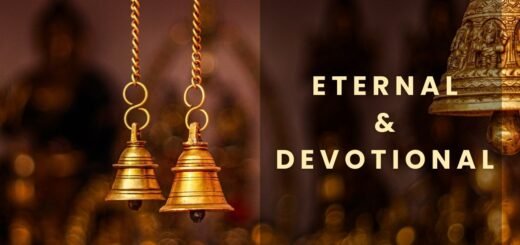How to Celebrate Vedavyasa Jayanthi Pooja At Home
See below for How to Celebrate Vedavyasa Jayanthi Pooja At Home? Significance of Sri Vedavyasa Jayanthi, Sri Vedavyasa Pooja At Home, And Bhagavan Vedavyasa Jayanthi Pooja Vidhana Here.
Sri Veda Vyasa The Hindu holiday of Jayanthi is a significant holiday that is observed in honor of the great sage Veda Vyasa. The Vedavyasa Jayanthi took place on the day of Shukla Paksha Trayodashi in the month of Vaishakha Masam in Telugu Hindu Calander. This means the 13th day of the Vaishaka Masam. Generally, the Sri Veda Vyasa Jayanthi comes between mid-April to mid-May every year.
He is also credited for separating the Vedas into four sections, which is how he earned the title of Veda Vyasa, which translates to “the divider of the Vedas.” The Mahabharata is regarded to be one of the longest and most important epic poems in all of world literature. Veda Vyasa is thought to be the author of the Mahabharata.
The event is observed by Hindus with a high degree of respect and devotion, particularly by those who adhere to the Vaishnavism and Shaivism traditions. The day is commemorated with the recital of religious scriptures, special prayers, and other cultural programs. People also pray to Veda Vyasa for the benefit of knowledge and wisdom by doing puja, which is an act of devotion.
Click here for the How to Celebrate Vedavyasa Jayanthi Pooja At Home and Mantra
Click here for How to celebrate Narasimha Jayanti at home?
How to Celebrate Vedavyasa Jayanthi Pooja At Home and Festival History:
In the religion of Hinduism, both Veda Vyasa’s life and his legacy are considered to be of the utmost importance. Legend has it that the wise man Parashara and the princess Satyavati gave birth to Veda Vyasa. Satyavati would subsequently marry King Shantanu of Hastinapur. Veda Vyasa was given the name Krishna Dvaipayana at birth, which translates to “the dark one born on an island.” Veda Vyasa was born on an island in the Yamuna River. Because of his significant contributions to the Vedas, he became known in subsequent years as Veda Vyasa.
Veda Vyasa is famous for his extensive knowledge and education in a variety of subject areas, including astrology, philosophy, and mythology, among others. Additionally, he is revered for the spiritual wisdom he possessed and the way in which he made the teachings of the Vedas more approachable and comprehensible to the general public.
According to legend, Veda Vyasa was the one who collated and organized the Vedas into their four distinct parts: the Rigveda, the Yajurveda, the Samaveda, and the Atharvaveda. Additionally, it is believed that he is the author of the Mahabharata and the Puranas, which together provide a wealth of information on dharma, karma, and the human condition.
How to Celebrate Vedavyasa Jayanthi Pooja At Home in Detail?
- Vedavyasa pooja is very simple to do at home
- No more pooja items or materials are needed to perform the Vedavyasapooja at home
- If you have Lord Sri Vedavyasa Photo or the Idol in the Home, You can perform the Pooja to that Idol and Photo
- If No Photo or Idol is available at home, No issue you can perform pooja to Lord Vishnu Photo or Idol
- First do Kalasha Pooja and Chat about the Vedavyasa Mantra
- Do Offer the Flowers to Sri Vedavyasa Devaru
- Offer Chandanam and do Pushparchanam
- Do Dhupa Deepa and Naivedhyam, Offer Coconut, Bananas, and Any other special Naivedhyam
- Offer Beatal Leaves as Thambulam
- And Do Mangalarathi.
The Mahabharata is a monumental epic poem that spans more than 180,000 words and is organized into 18 books. It is considered to be one of the holiest scriptures in the Hindu religion. It is recognized for the philosophical teachings of Lord Krishna, who appears as a significant figure in the epic, and it narrates the account of the struggle that occurred between the dynasties of the Kuru and the Pandavas. The Mahabharata is widely regarded as a literary masterpiece and is sometimes called the “fifth Veda.”
The event has a special significance for students and academics because during it they pray to Veda Vyasa for the benefits they need to be successful in their studies and research. Veda Vyasa is worshipped as the personification of knowledge and wisdom, and it is thought that he has the ability to bestow intellectual and spiritual development onto his followers. On this day, students would often recite passages from the Mahabharata or from other holy books, and they will pray to Veda Vyasa for his blessings in the hopes of achieving success in their scholastic endeavors.

